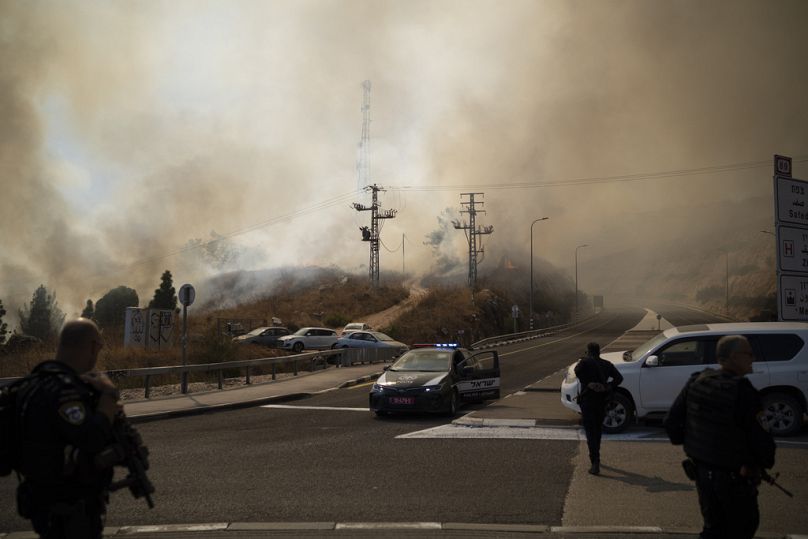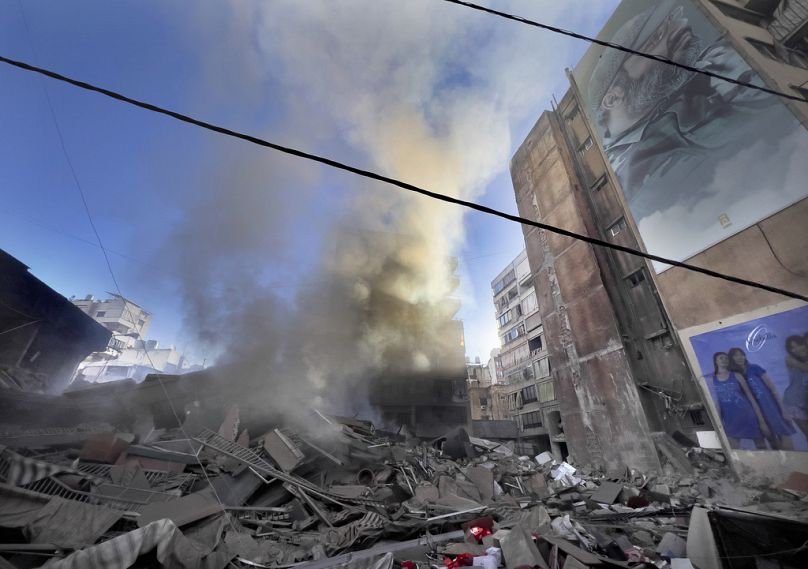At least 87 people are dead or missing after Israeli strikes in the northern Gaza Strip overnight and into Sunday, its Health Ministry said.
It said another 40 people were wounded in the strikes on the town of Beit Lahiya, which was among the first targets of Israel’s ground invasion nearly a year ago.
Israel has been carrying out a large-scale operation in northern Gaza for the last two weeks, saying Hamas has regrouped there. Palestinian officials say hundreds of people have been killed and that the health sector in the north is on the verge of collapse.
The U.S. is urging Israel to press for a cease-fire in Gaza following the killing of Hamas leader Yahya Sinwar last week. But neither Israel nor Hamas has shown any renewed interest in such a deal, after months of negotiations sputtered to a halt in August.
Iran supports Hamas and the Hezbollah militant group in Lebanon, where a year of escalating tensions boiled over into all-out war last month. Israel sent ground troops into Lebanon at the start of October.
On Saturday, a drone targeted Israeli Prime Minister Benjamin Netanyahu’s house, causing no casualties, as part of a barrage of incoming projectiles across the country’s northern border. It wasn’t clear if the house was hit.
And on Sunday more rockets landed in Israel, without causing any casualties, including one which landed near the northern town of Rosh Pinna.
Israel has meanwhile ramped up strikes on southern neighbourhoods of Beirut known as the Dahiyeh, a crowded residential area. Hezbollah has a strong presence there, but it is also home to large numbers of civilians and people unaffiliated with the militant group.
U.S. Defence Secretary Lloyd Austin, has called civilian casualties in Lebanon “far too high” in the Israel-Hezbollah war and urged Israel to scale back some strikes, especially in and around Beirut.
Among the dead from the strikes in Beit Lahiya were two parents and their four children, and a woman, her son and her daughter-law and their four children, according to Raheem Kheder, a medic. He said the strike flattened a multi-story building and at least four neighbouring houses.
There was no immediate comment on the strikes from the Israeli military.
Mounir al-Bursh, director general of the Health Ministry, said the flood of wounded from the strikes compounded “an already catastrophic situation for the health care system” in northern Gaza, in a post on X.
Doctors Without Borders, an international charity, called on Israeli forces “to immediately stop their attacks on hospitals in North Gaza" after the Health Ministry said Israeli troops had fired on two hospitals over the weekend.
The military said it was operating near one of the hospitals but had not fired directly at it, and that it was looking into the other incident.
“The ever-worsening escalation of violence and non-stop Israeli military operations that we have been witnessing over the past two weeks in northern Gaza have horrifying consequences,” said Anna Halford, an emergency coordinator for MSF.
“When hospitals are attacked, their infrastructure destroyed, and the electricity cut off, the lives of patients and medical staff are under threat.”
Internet connectivity went down in northern Gaza late on Saturday and had not yet been restored by midday on Sunday, making it difficult to gather information about the strikes and complicating rescue efforts.
Israel has been carrying out a major operation in Jabaliya, also in northern Gaza, for the last two weeks. The military says it launched the operation against Hamas militants who had regrouped there.
Over the course of the war, Israeli forces have repeatedly returned to Jabaliya, a densely populated urban refugee camp dating back to the 1948 war surrounding Israel's creation.
The north has already suffered the heaviest destruction of the war, and has been encircled by Israeli forces since late last year, following the deadly Hamas' attack on Israel.
Israel ordered the entire population of the northern third of Gaza, including Gaza City, to evacuate to the south in the opening weeks of the war and reiterated those instructions earlier this month. Most of the population fled last year, but around 400,000 people are believed to have remained in the north.
Palestinians who fled the north at the start of the war have not been allowed to return.
On Oct. 7, 2023, Hamas-led militants blew holes in Israel’s security fence and stormed in, killing some 1,200 people, mostly civilians, and abducting another 250. Around 100 captives are still being held in Gaza, a third of whom are believed to be dead.
Israel’s offensive in Gaza has killed over 42,000 Palestinians, according to local health authorities, who do not distinguish combatants from civilians. The war has destroyed large areas of Gaza and displaced about 90% of its population of 2.3 million people.













